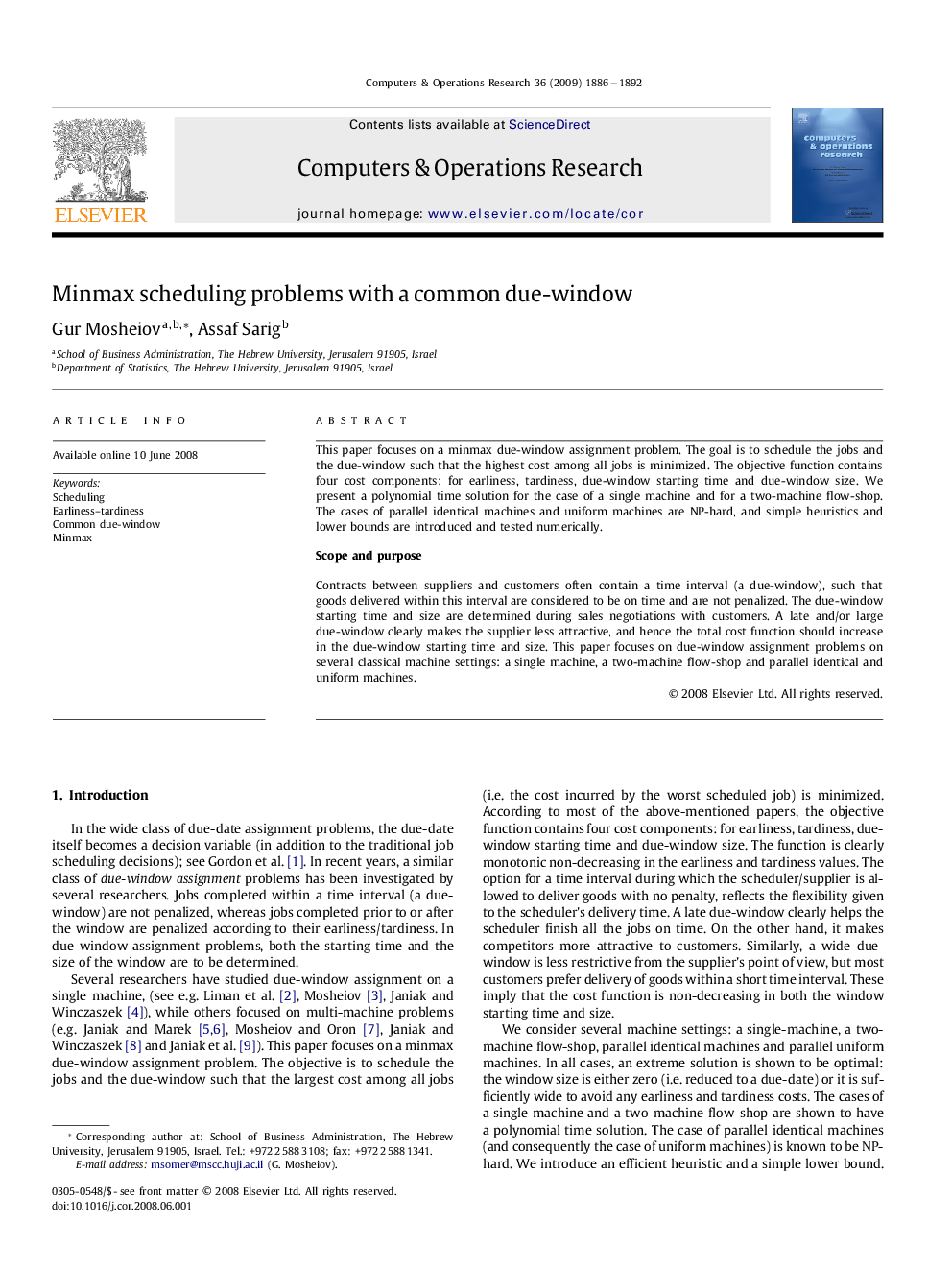| Article ID | Journal | Published Year | Pages | File Type |
|---|---|---|---|---|
| 475890 | Computers & Operations Research | 2009 | 7 Pages |
This paper focuses on a minmax due-window assignment problem. The goal is to schedule the jobs and the due-window such that the highest cost among all jobs is minimized. The objective function contains four cost components: for earliness, tardiness, due-window starting time and due-window size. We present a polynomial time solution for the case of a single machine and for a two-machine flow-shop. The cases of parallel identical machines and uniform machines are NP-hard, and simple heuristics and lower bounds are introduced and tested numerically.Scope and purposeContracts between suppliers and customers often contain a time interval (a due-window), such that goods delivered within this interval are considered to be on time and are not penalized. The due-window starting time and size are determined during sales negotiations with customers. A late and/or large due-window clearly makes the supplier less attractive, and hence the total cost function should increase in the due-window starting time and size. This paper focuses on due-window assignment problems on several classical machine settings: a single machine, a two-machine flow-shop and parallel identical and uniform machines.
